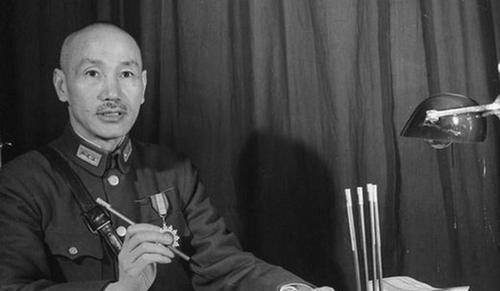Nanjing, the capital of the country, in December 1937, the ancient capital was about to face the ravages of war!
In any case, the Chinese government has no reason not to stick to Nanjing. Nanjing is located in a bend in the lower reaches of the Yangtze River, the east is Jinjinshan, the north and west is the Yangtze River, the south is an open area, such a special geographical environment, the defense of Nanjing City, since ancient times to the present is a problem.
As long as it occupies a few important places on the outskirts of Nanjing, there is no room for maneuver in Nanjing City at all.

In 1932, after the Shanghai 128 Incident, the Nationalist government began to consider the defense of Nanjing. The Nanjing government believed that once the Japanese army occupied Shanghai, it would definitely attack Nanjing along the Beijing-Shanghai railway and the Yangtze River waterway. To this end, under the guidance of German military advisers, the Nanjing government built the Wufu Line and the Xicheng Line from Shanghai to Nanjing, two fortifications.
At the same time, the fortifications of Jiangyin, Zhenjiang and other places along the Yangtze River have also been specially reinforced and repaired. Two internal and external defensive positions were also constructed in the Nanjing area: from Dashengguan, Niushoushan, Chunhua Town, all the way to Wulong Mountain, which was the outer position; Yuhuatai, Xiaolingwei, Purple Mountain, and all the way to the Shogunate Mountain Fortress, which was the Chengguo position.
In the east of the city, the Arctic Pavilion, the west of Qingliangshan, and other core strongholds built on the highlands.
Despite this, the defense of Nanjing is still in danger.
The quality of the fortifications on the Wufu Line and the Xicheng Line can be said to be very poor, and the Chinese troops withdrawn from the Songhu battlefield were simply unable to gain a foothold in the position, and the so-called national defense fortifications were effortlessly breached by the Japanese army.
Chiang Kai-shek urgently convened a meeting to discuss the issue of the defense of Nanjing.
The first question is, does Nanjing keep it or not?
For this problem, Li Zongren's suggestion is very clear:
Nanjing is unguardable. He believes that tactically, Nanjing is a Jedi, the Japanese army can besiege on three sides, and the north is blocked by the Yangtze River, and there is no way to retreat. It is difficult to use the frustrated troops on the battlefield of Songhu to sit in the isolated city.
Moreover, after the new defeat of the Chinese army, the morale was hit, and there was no fresh reinforcement, and it was only a matter of time before Nanjing was breached. It would be better to declare Nanjing as an undefended city in advance, so as not to burn civilians under the pretext of the Japanese army.
The withdrawal of Chinese troops to the two banks of the Yangtze River can on the one hand prevent the enemy from advancing northward towards Jinpu Road, and at the same time, it can prevent the enemy from moving west, so that they can use Nanjing, and it does not matter to the overall situation of the war.
Chief of Staff Bai Chongxi also very much agreed with Li Zongren's opinion.
Liu Fei, director of the 1st Department of the Military Command, said: You can symbolically defend it. He believes that the war against Japan should be a continuous war of attrition, and should not care about the gains and losses of one city and one place. Every time the Japanese army occupied a place, it had to divide its troops and garrison it, and in the long run, it would certainly be dragged down by the war. However, Nanjing is the capital of the National Government, and without any resistance, it will simply give up, naturally not. After appropriate resistance, take the initiative to retreat, and use 12 regiments in terms of strength.
Chiang Kai-shek's opinion was also very clear: although the Japanese army had won a tactical victory, it had already failed strategically, and the Chinese army should quickly leave the battlefield and withdraw to the southern Anhui region, with Nanjing as the vanguard position, and carry out the purpose of protracted war of resistance.
However, at this time, Tang Shengzhi advocated sticking to it, he believed that Nanjing was the capital, and it was also the place of international observation, and it was also the tomb of Premier Sun, and if Nanjing was abandoned, how could it be the spirit of the premier in heaven, so it was necessary to stick to it.
After all the opinions were combined, Chiang Kai-shek made the final decision: The city of Nanjing should defend it.
Judging from the above opinions, Li Zongren Bai Chongxi is biased toward the military, Li Fei and Chiang Kai-shek are between military and political, and Tang Shengzhi is completely emotional.